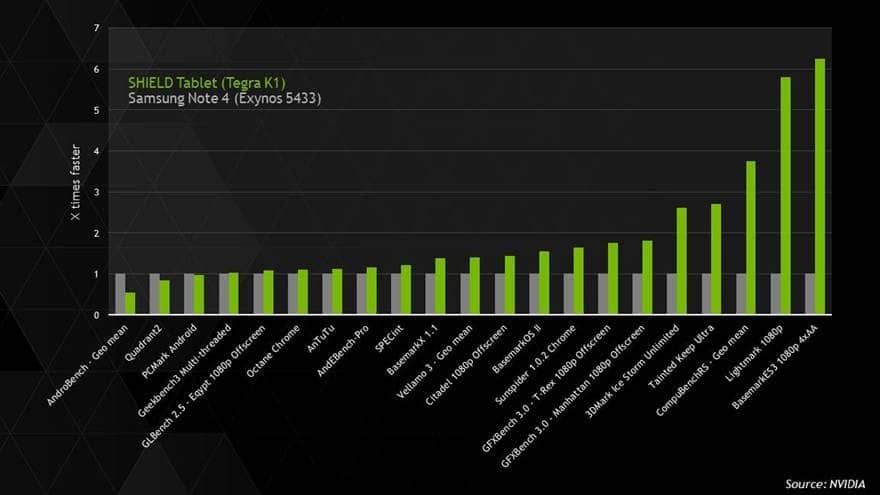We filed patent lawsuits two months ago against Samsung and Qualcomm alleging that they’ve used our patented GPU technology without proper compensation to us.
When we filed those suits in the International Trade Commission and Delaware District Court, we fully expected that we would be sued in response. It’s a predictable tactic.
So, we weren’t surprised when, earlier this week, Samsung filed a lawsuit against us – adding in for good measure Velocity Micro, a small customer of ours based in Virginia.
Their action, filed in Virginia, focuses on eight patents. NVIDIA is alleged to have violated six. Velocity is alleged to have violated all eight.
Included in the filing is a false advertising claim against NVIDIA. It alleges that our statement that the SHIELD tablet, with its Tegra K1 processor, has “the world’s fastest mobile processor” is false and misleading. Samsung alleges that its Exynos 5433 processor is faster on a couple benchmarks.
We aren’t yet ready to respond formally to Samsung’s lawsuit. But we can’t hold back on their false contention that Samsung’s Galaxy Note 4 outperforms the SHIELD tablet.
Here are some benchmarks that show the extent to which the SHIELD tablet outperforms Samsung’s device. We ran both products in a standard “out of box” configuration with publicly available software.
It’s unfortunate that Samsung sued Velocity. This isn’t Velocity’s fight. But Samsung is just trying to keep its lawsuit in Virginia, which has a faster time to trial than most jurisdictions in the United States.
It can be a dangerous strategy for one of the largest companies on the planet to decide to sue one of the smallest companies in all of Virginia.
Samsung’s action does not change our analysis, or our determination. Our patent lawsuit in the ITC is moving forward and remains a far more serious problem for them.
- See more at: http://blogs.nvidia.com/blog/2014/11/11/nvidia-responds-to-samsung/#sthash.iysnG5dM.dpufWe filed patent lawsuits two months ago against Samsung and Qualcomm alleging that they’ve used our patented GPU technology without proper compensation to us.
When we filed those suits in the International Trade Commission and Delaware District Court, we fully expected that we would be sued in response. It’s a predictable tactic.
So, we weren’t surprised when, earlier this week, Samsung filed a lawsuit against us – adding in for good measure Velocity Micro, a small customer of ours based in Virginia.
Their action, filed in Virginia, focuses on eight patents. NVIDIA is alleged to have violated six. Velocity is alleged to have violated all eight.
Included in the filing is a false advertising claim against NVIDIA. It alleges that our statement that the SHIELD tablet, with its Tegra K1 processor, has “the world’s fastest mobile processor” is false and misleading. Samsung alleges that its Exynos 5433 processor is faster on a couple benchmarks.
We aren’t yet ready to respond formally to Samsung’s lawsuit. But we can’t hold back on their false contention that Samsung’s Galaxy Note 4 outperforms the SHIELD tablet.
Here are some benchmarks that show the extent to which the SHIELD tablet outperforms Samsung’s device. We ran both products in a standard “out of box” configuration with publicly available software.
It’s unfortunate that Samsung sued Velocity. This isn’t Velocity’s fight. But Samsung is just trying to keep its lawsuit in Virginia, which has a faster time to trial than most jurisdictions in the United States.
It can be a dangerous strategy for one of the largest companies on the planet to decide to sue one of the smallest companies in all of Virginia.
Samsung’s action does not change our analysis, or our determination. Our patent lawsuit in the ITC is moving forward and remains a far more serious problem for them.

 O-Sense
O-Sense








.png)

